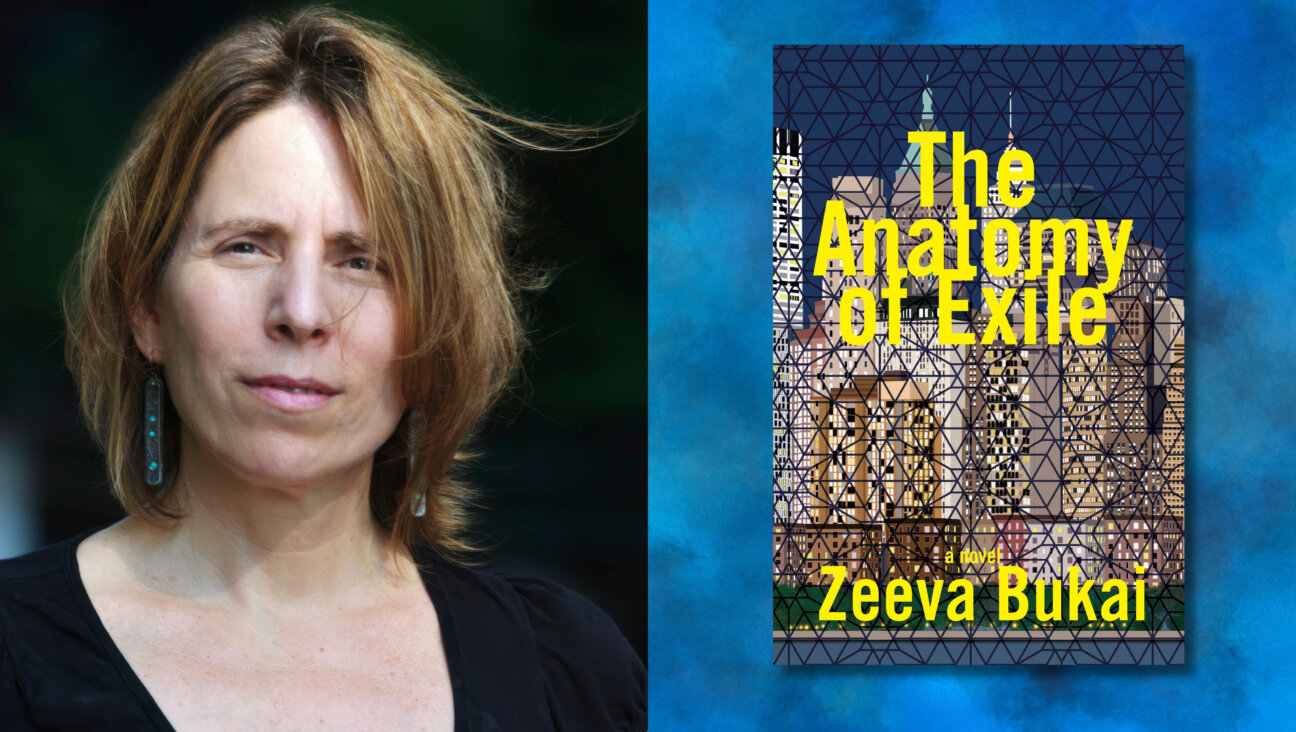Eighteen Solutions to the Israeli-Palestinian Conflict
How many ways are there to solve the Israeli-Palestinian conflict? Given that none so far have definitively worked, the number doesn’t seem high. But in a new anthology, “United States of Palestine — Israel” (Sternberg Press, 2011) a group of Israeli, Palestinian and European left-wing writers and artists present no less than 18 solutions to the conflict.
On September 17 Joshua Simon, an Israeli writer, curator, filmmaker and editor of the collection, held a talk at the New Museum in New York together along Ohad Meromi, an Israeli writer, and Ingo Niermann, a German artist. Niermann is also the editor of the “Solutions” series for the Sternberg Press, a German publishing house that has tackled the problems of places such as the U.S., Japan, Scotland and Dubai.
?utm_source=New+Museum+News&utm_campaign=dc1278e6d0-2011_09_07_EVENTS_18_26_2011&utm_medium=email
In addition to editing the anthology, Simon also contributed a solution of his own in a chapter co-written with Meromi. At the lecture, Simon and Meromi presented their solution: a return to the kibbutz. They showed images of stylish, modernist posters with quotations like, “Living Together Beyond Property” and “Unlearning the Community and the State.” Meromi and Simon’s idea features the kibbutz as “a place repurposed for the right of return.”
For the authors, the kibbutzim were structures for the original settlement of the land. But what was once a vehicle for Jews from around the world to settle their biblical homeland has since downsized, privatized, and shifted away from its original purpose. Now, with less interest in the ideals of the kibbutz movement among Jewish Israelis, the “carcasses” (in Meromi’s words) of the kibbutzim are left dormant as gated communities that exclude Palestinians. Meromi, who was born on a kibbutz, has worked with the idea in his art, including in his recent exhibit at Art in General, “Rehearsal Sculpture.”
A solution to the problems between Arabs and Jews coming from Germany is inherently problematic, and Niermann doesn’t make it seem any less so. His idea entails the construction of reservations, much like those for Native Americans in the United States, for everyone from Orthodox Jews to Arab Christians, to Jewish and Palestinian homosexuals.
Another radical solution is by the Israeli artist Yael Bartana, who represented Poland at this year’s Venice Biennale. She imagines a situation in which Jews “return” to Poland. “Like many decades ago,” she writes in her chapter, “we wish to once again settle in a land where no one is expecting us.”
A message from our Publisher & CEO Rachel Fishman Feddersen

I hope you appreciated this article. Before you go, I’d like to ask you to please support the Forward’s award-winning, nonprofit journalism so that we can be prepared for whatever news 2025 brings.
At a time when other newsrooms are closing or cutting back, the Forward has removed its paywall and invested additional resources to report on the ground from Israel and around the U.S. on the impact of the war, rising antisemitism and polarized discourse.
Readers like you make it all possible. Support our work by becoming a Forward Member and connect with our journalism and your community.
— Rachel Fishman Feddersen, Publisher and CEO























